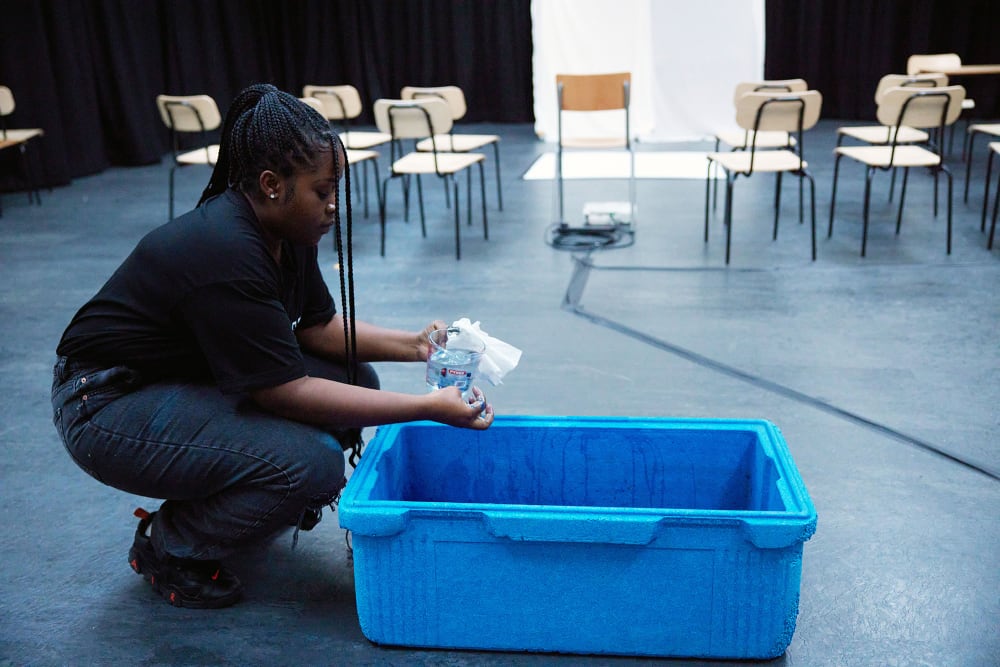
, Wimbledon College of Arts, UAL | Photograph: Photo by Kristina Sarkisyan 2023
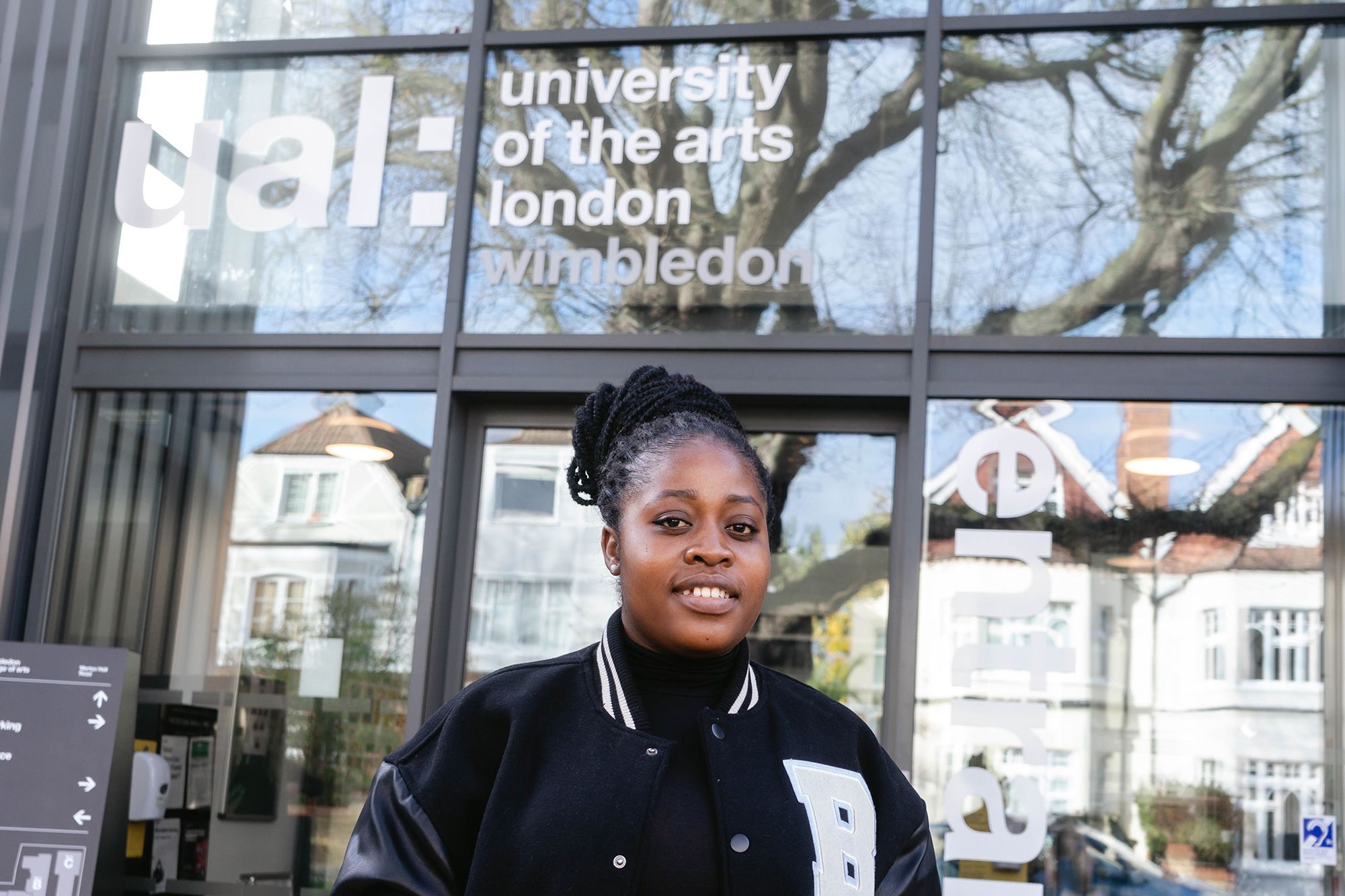

Currently studying MA Performance: Politics and Social Justice at Wimbledon College of Arts, Theresa Nelson describes her experience at Wimbledon as “simply amazing”, noting the supportive environment and culture of collaboration as contributing factors.
Theresa joins a long line of students who have found support through a UAL scholarship. UAL's postgraduate scholarships aim to support prospective students from a range of different countries by removing potential financial barriers to studying.
Theresa’s decision to study at Wimbledon comes at an exciting time for the College, with a recent multi-million-pound redevelopment offering state of the art facilities for students. In line with the redevelopment, the College has also shifted its focus to performance arts, building on its international reputation for producing new generations of innovative performers, theatre-makers and designers. This shift has seen the introduction of several new courses in recent years, including BA (Hons) Contemporary Theatre and Performance, MA Performance: Theatre Making, and MA Puppetry.

Theresa tells us about her experience of studying at Wimbledon, the process of applying for the scholarship and her plans for the future in helping develop the theatre industry in her home country of Ghana.
My name is Theresa Nelson and I'm from Accra, the capital city of Ghana. I am currently the recipient of UAL’s International Postgraduate Scholarship and am studying MA Performance: Politics and Social Justice at Wimbledon College of Arts.
I completed my first degree at the University of Ghana studying Sociology and Linguistics. Studying sociology means I have a lot of knowledge and experience around the behaviours of human beings. Although sociologists are able to offer a lens for understanding the socio-political landscape of our time, we are not necessarily taught in a performative way. This was something that was lacking for me in my initial studies.
When I saw the opportunity to study MA Performance: Politics and Social Justice at Wimbledon College of Arts, I felt motivated that UAL was the right place for me to combine my sociological background with my passion for performance.
Growing up, I was interested in work around female empowerment and activism; trying to make a difference in my own small way. My interest in performance initially developed through my work at the University of Ghana’s Residential Hall. The office I worked in oversaw the allocation of space for the students, helped with productions, and helped with selecting candidates for the courses.
To be able to go back to Ghana and highlight some of the issues we face was a central motivation in applying for the scholarship and course. When I saw the option to use performance to shine a light on these issues, I had a lightbulb moment, and I knew it was for me. I felt the programme was very detailed and it had the potential to give me the tools I need to build a career after I graduate. I think I've always wanted to have more of a voice, I just didn't know how to put it together in a way where I would be heard. The course leader, Sophia New, has really helped me with this. Applying for the course and scholarship was a jump into the unknown, but it’s been a great opportunity for me to gain more knowledge and learn how to apply my voice within the context of performance.
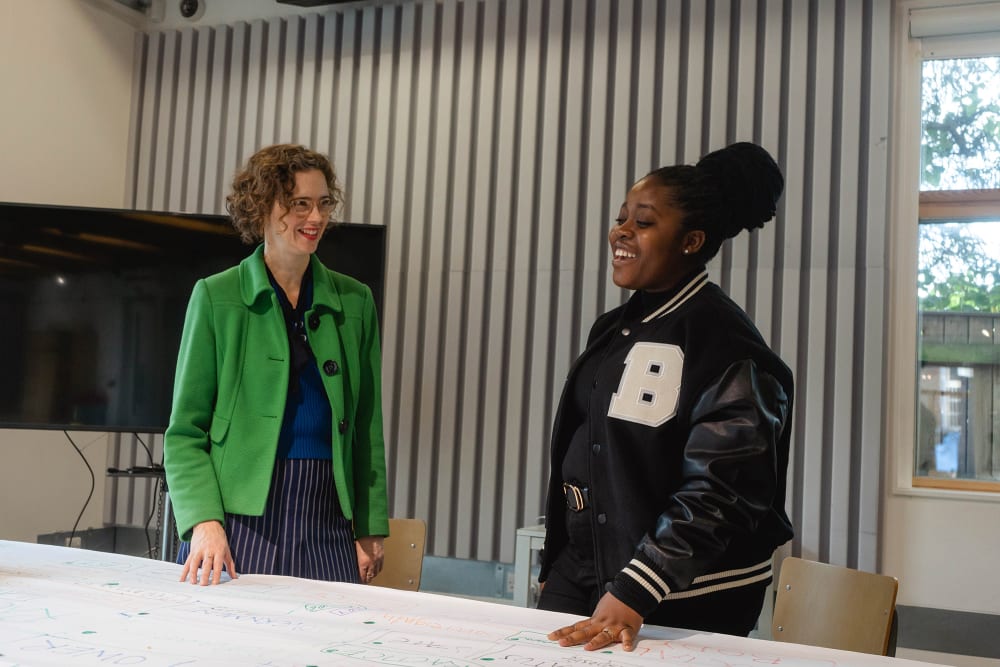
The application process requires a lot thought and research. You have to respond to a number of questions – including your commitment to the values of social justice and environmental stewardship. Part of the process requires you to write an essay, which I spent a lot of time on. The essay relates to how you intend to apply your learning to improve an area of the industry in your home country. I don’t think the essay is easy, but it helps you interrogate your own reasons for applying.
It would have been a real challenge for me to study on the course without the scholarship. I would have needed to get a student loan, and I’m not sure I could have done it. When I saw that there was an opportunity to apply for a scholarship, I took my time to look into what they wanted, and whether my experience, skills and knowledge matched.
I've never seen anything like Wimbledon. When you get there, you feel like you are in the midst of so much. You have the designers, the makers, the performers: everyone is doing everything. You’re not limited to the area you are studying. Instead, you have the opportunity to experience other theatre practices and it helps build an understanding of how different art forms feed into your own work. There’s a really supportive community of artists here. If you need help with a particular subject area or want to know more about a specific technique or art form, then help is always there. Personally, I like making. I like to make stuff with my hands. It has always been my culture. I think the ability to transform theoretical understanding into making in an open environment like this is important.
I am also impressed by how the level of technology really helps make this possible. Everything is brand new, which is amazing. I would say that it's one of the most modern facilities I have been to in terms of performance schools. For performers, having the physical space to be able to explore your practice is not always a given, so it’s something I really appreciate at Wimbledon. The new facilities and studios mean there’s ample space to experiment with your classmates and consider how you want to use your body in performance, which encourages you to put yourself out there. It opens up different possibilities from a performance perspective.
Coming from Ghana, I really enjoy the fact there are lots of international students here because it means that everyone is represented, and you get to hear from a lot of different viewpoints and cultures.
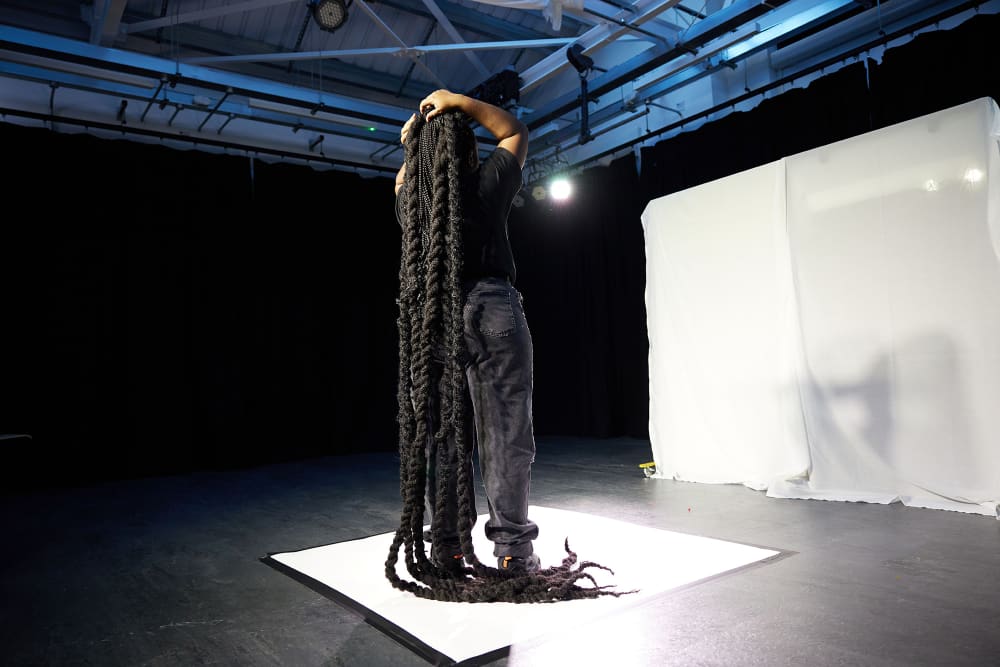
I'm really happy with the course because it doesn't limit me. I find it gives you the opportunity to work interpretatively according to your own understanding of the subject matter and gives you the tools to present it in a way that makes sense for you. Essentially, you have the freedom to explore your own thinking in the context of performative practice. It means you come out with a much greater, holistic understanding of the subject – both in a broader sense and relation to your own practice.
I have also enjoyed the collaborative element. So far, we have worked with the MA Performance: Theatre Making and MA Theatre and Performance Design students. We have a unit explicitly dedicated to collaboration where we share lectures and seminars and explore ways in which we might want to work together. This is an important aspect for me because I'm very inquisitive. When I don't have a lecture, I like to visit different studio spaces to see what they're doing. I have found that the constant exposure to other practices helps improve my own performance practice.
First and foremost, my passion is being an activist and being able to articulate all the social issues in my country. I want to be a voice for the vulnerable and underrepresented members in our society, and I want to use performance to do this.
Currently, the theatre industry in Ghana doesn’t have enough academic research to support the performance side of things; the balance is missing. It needs all hands on deck because it's still in the development stage. Many of our cultures are unwritten and are orally transferred, so many are lost over time. The internet also tends to inflate and conflate information associated with our cultures, so researchers and scholars are needed to put them into writing and preserve them. When you're able to preserve the culture, then it's able to stand the test of time, and transfer to a lot more people. There are a number of scholars who are already back in Ghana trying to help and design a more structured performance industry, but there’s a very long way to go in terms of preserving our cultures. I feel that if I get a lot of training and develop my understanding of performance and writing, I can be part of the efforts to translate our cultures and bring awareness to some of the issues in my country.
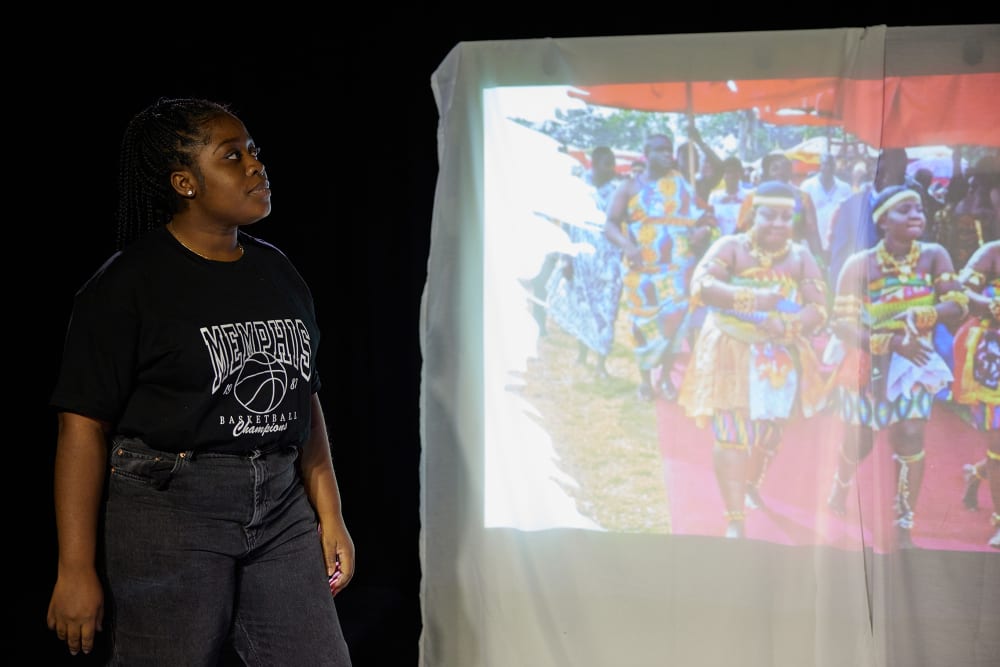
I would encourage everyone to go for it because it’s been a life changing experience for me. Without the scholarship, I don't think I would be here, and UAL has really made sure I feel welcome. My tuition and accommodation have been covered, giving me time to really focus on my studies and develop my practice. Everything UAL promised has been provided.
I would also highly recommend the MA Performance: Politics and Social Justice course for anyone who wants to learn how to affect change through performance.
UAL is one of the best universities in the world and studying here has opened a lot of doors for me. If you are out there and you believe in change, I am proof it is possible.